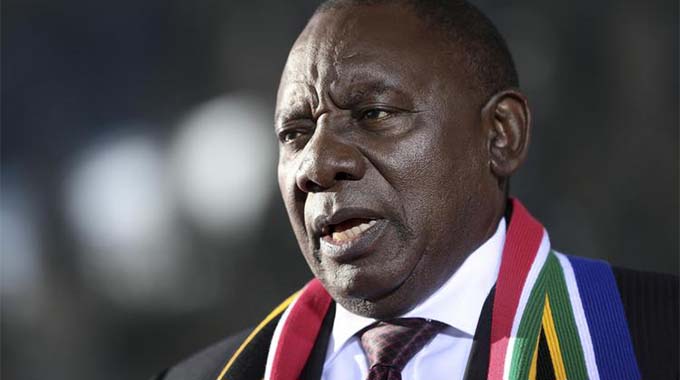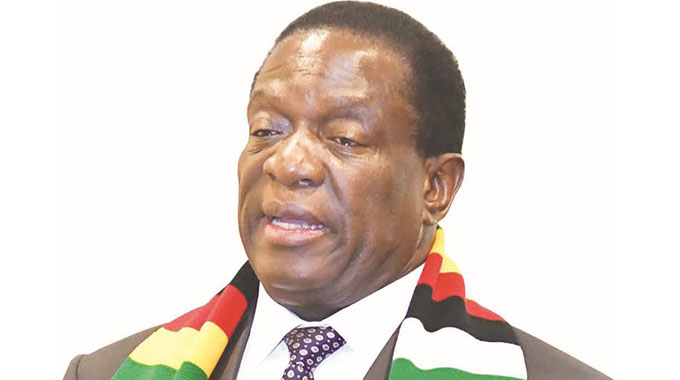ED’s tour of Eurasia opens new frontiers

Mabasa Sasa
President Mnangagwa’s four-nation tour of Eurasia has opened new frontiers for his administration’s economic diplomacy thrust, whose objective is to deliver a middle-income economy by 2030.
The Head of State and Government and Commander-in-Chief of the Zimbabwe Defence Forces was invited by the leaders of Russia, Belarus, Azerbaijan and Kazakhstan to strengthen existing economic and political relations with the first two, and forge new mutually beneficial partnerships.
The agreements cover a plethora of areas, including agriculture, mining, transport and logistics, industrial manufacturing, education and training and infrastructure development, among others.
On arrival at Robert Gabriel Mugabe International Airport on Monday night, President Mnangagwa expressed satisfaction with the deals that had been sealed and the new relationships that had been established.
Asked what issues had been covered in the meetings, President Mnangagwa said: “Well, it’s a lot in terms of the vast areas in Russia, in Belarus, Azerbaijan and Kazakhstan. Those countries support us tremendously and we have a bagful of projects.”
The President said a comprehensive statement detailing the outcomes would be issued.
The tour started in Russia, through to Belarus and Azerbaijan, and ended in Kazakhstan.
The following is a synopsis of the President’s Eurasian tour.
Moscow
President Mnangagwa’s meeting at the Kremlin with President Vladimir Putin yielded a raft of breakthroughs for Russo-Zimbabwe economic co-operation, among them a financial package to assist Harare settle and restructure its international debt and fund new projects.
VTB Bank (Foreign Trade Bank) agreed to support Zimbabwe’s debt settlement, debt restructuring and financing of new projects.
The bank, rated one of the world’s leading firms by the Financial Times, said the actual figures involved would be made public in due course.
President Mnangagwa and President Putin were emphatic that the era of deals failing to see the light of day was a thing of the past.
Also agreed in Moscow was a US$267 million package for Great Dyke Investments (GDI) to immediately start production-related works on their platinum claims in Darwendale.
The tie ups were made possible by Russian shareholding in key lenders the African Finance Corporation and Afrieximbank.
And after Government granted GDI a mining lease agreement, it was also revealed in Russia that geo-survey work points to GDI’s platinum ore holdings totalling 1,36 million tonnes.
Alrosa, the world’s biggest diamond producer, reached an agreement to start core operations in Zimbabwe.
Presidents Mnangagwa and Putin also steered through an agreement for Russia to provide geological services to properly quantify Zimbabwe’s national minerals endowment.
In agriculture, Zimbabwe and Russia agreed to build a fertiliser and agri-chemicals manufacturing plant through Russia’s Uralchem. The plant will supply Zimbabwe and the Southern African region.
The two leaders agreed to establish a dealer centre for agri-equipment, again to service both Zimbabwe and the region; as well as another deal for the supply of 30 000 tonnes of wheat. Agreements were reached on civil aviation co-operation, supply of 100 wagons to the National Railways of Zimbabwe and for road and rail construction.
An agreement on mutual protection of results of intellectual activity (intellectual property) was signed, as was an agreement on a Treaty on Extradition.
Zimbabwe and Russia agreed to co-operate on monitoring of proceeds of crimes and financing of terrorism. President Mnangagwa further secured agreements on provision of scholarships.
The cultural and political side of things were not neglected, as President Mnangagwa made time in his busy schedule to honour the Russian World War II dead by laying a wreath at the Tomb of the Unknown Soldier at the Kremlin Wall.
Minsk
In Belarus, Presidents Mnangagwa and Alexander Lukashenko sealed eight agreements, and also advanced a grand infrastructure scheme that will make Zimbabwe a regional transport and logistics hub.
The road and rail network — which could be built under a Zimbabwe-Belarus-China tripartite arrangement — will link the Indian and Atlantic oceans, across Southern Africa and through Zimbabwe.
The scheme, according to the Chief of Presidential Affairs of Belarus Mr Victor Sheiman, involves several Southern African countries and indications are that a number of regional leaders have already expressed support for it.
A joint venture company will in the coming weeks be registered to take the ambitious project forward. Apart from that, Belarus will invest in irrigation systems, residential housing, roads (possibly with China), and a 100MW solar power plant.
A Belarusian firm is conducting geo-survey work on 270 000 square kilometres and had already made preliminary reports of prime gold, chrome and lithium deposits.
Further, a transport company with an initial 1 000 trucks will be registered so as to facilitate commerce via ports; while a logistics firm will be established in due course to service Southern Africa.
Zimbabwe and Belarus are on the brink of concluding major agreements on joint production and processing of beef, poultry, pork, dairy, horticulture, fruits, wheat and maize.
“This is how it should be between friendly countries,” President Mnangagwa said of the agreements.
“Zimbabwe shall benefit immensely from the experience that Belarus has had. They have gone through similar challenges as we are presently going through.”
President Lukashenko responded: “We are loyal and sincere friends,” adding that Belarus considered Zimbabwe a strategic partner in Africa.
In Minsk, President Mnangagwa paid his respects to the roughly 2,6 million Belarusians killed in World War II by laying a wreath at the Victory Square monument and also lit a symbolic candle in the Christian Orthodox Church Memorial Cathedral.
Baku
Azerbaijan was virgin territory for both sides as Presidents Mnangagwa and Ilham Aliyev met for the first time.
Secretary for Foreign Affairs and International Trade Ambassador James Manzou said, “Zimbabwe had already flourishing diplomatic relations with Russia and Belarus . . . But Azerbaijan and Kazakhstan are unique in the sense that for those two countries, we are breaking new frontiers in search of economic co-operation in line with our policy of economic diplomacy.”
The two leaders’ meeting explored co-operation in an oil and gas (Azerbaijan produces both in copious quantities).
Baku holds significant reserves in its sovereign funds and negotiators are now determining how this money can be used in Zimbabwe — particularly in mining and infrastructure development — for both countries’ benefit.
“I must say that there was very keen interest from President Aliyev in the possibility of investing in Zimbabwe and therefore henceforth what is needed is to build the legal framework for co-operation with Azerbaijan,” Ambassador Manzou said.
In the works are draft agreements for establishment of a Joint Commission, bilateral investment protection, and avoidance of double taxation.
After meeting President Aliyev at the Presidential Palace in Astana, President Mnangagwa toured the Asana Service Centre, which serves as a wonderful example of how to streamline government services and cut all the red tape.
For instance, registering a company at this centre takes just 15 minutes — something President Mnangagwa said Zimbabwe would certainly learn from as his administration continuously works on the ease and cost of doing business.
Astana
Kazakhstan’s capital was the final stop as Presidents Mnangagwa and Nursultan Nazarbayev laid the foundation for a productive relationship between Zimbabwe and the industrial and petrochemical giant.
President Nazarbayev invited President Mnangagwa to the Presidential Palace to discuss areas of possible co-operation, and after their meeting the two leaders emerged expressing optimism that they would have a mutually beneficial partnership.
President Mnangagwa said, “We have decided that we should not continue to cry as a result of the imposition of sanctions . . . Our approach to our development in terms of modernising, growing and industrialising our economy and country is having a new approach in foreign policy, which is engaging and re-engaging with the international community.”
This is where Kazakhstan fits in.
The two leaders, in their maiden meeting, hit it off well and have tasked their officials to thrash out areas of possible co-operation in agriculture, mining, transport and logistics, industrial manufacturing and infrastructure development, among others.
While in Kazakhstan, President Mnangagwa was taken on tours of Baiterek Monument, the Nur Alem Pavilion, the National Museum and the Presidential Library.










Comments